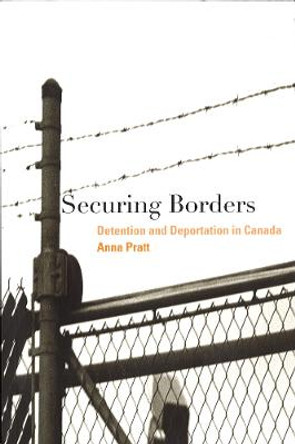Description
Immigration Policy in the Age of Punishment takes a critical, interdisciplinary, and transnational look at current issues surrounding immigration in the U.S. and abroad. It examines key features of this age of punishment, connecting neoliberal governance, global labor markets, and the national obsession with securing borders to explain critical research and theory on immigration enforcement. Contributors document the continuities between presidential administrations and across countries from many perspectives, with chapters discussing Canada, Australia, France, the UK, the Dominican Republic, and Mexico in addition to the U.S. They offer macro-level analyses of deportations and border enforcement, analyses of national policy and jurisprudence, and ethnographic accounts of the daily life experience of the prison-to-deportation pipeline, the making of deportability, and post-deportation transitions for noncitizens. This book highlights new directions in critical immigration policy and enforcement and deportation studies with the aim of problematizing the age of punishment that currently reigns over borders and those who seek to cross them.
About the Author
David C. Brotherton is professor of sociology at John Jay College of Criminal Justice and the Graduate Center, City University of New York. His Columbia University Press books include Gangs and Society: Alternative Perspectives (2003); The Almighty Latin King and Queen Nation: Street Politics and the Transformation of a New York Gang (2004); Keeping Out the Other: A Critical Introduction to Immigration Enforcement Today (2008); and Banished to the Homeland: Dominican Deportees and Their Stories of Exile (2011).
Philip Kretsedemas is associate professor of sociology at the University of Massachusetts-Boston. He is the author of The Immigration Crucible (2012, Columbia University Press) and Migrants and Race in the US (2013).
Reviews
This timely volume takes sharp aim at institutions that continue to marginalize the vulnerable, and, in doing so, it makes important advances for Studies in Transgression. Toward that end, an impressive roster of international contributors demonstrates the global implications of border-and social-control. -- Michael Welch, Rutgers University and University of Buenos Aires
Immigration Policy in the Age of Punishment identifies the sharp edges of Western efforts to make life difficult for migrants. Importantly, it does so in part by doing what many books fail to do: expanding its gaze away from a narrow concern about the boundaries of nation-states. Reaching into fields as disparate as geography and sociology, these essays will begin to define the field of critical immigration enforcement studies. -- Cesar Cuauhtemoc Garcia Hernandez, Sturm College of Law, University of Denver
This innovative book captures the changing nature of global migration and immigration policies, critiquing and contextualizing them for readers. Theoretically rich, Immigration Policy in the Age of Punishment is one of the more thorough efforts to draw important connections between mainstream aspects of U.S. criminal justice-such as hyper-incarceration and the self-reinforcing, self-fulfilling "tough on crime" approaches-and the criminalization of immigration. -- David Androff, Arizona State University
An impressive collection of scholarship written by international experts on immigration policy. * American Journal of Sociology *
Book Information
ISBN 9780231179379
Author Philip Kretsedemas
Format Paperback
Page Count 344
Imprint Columbia University Press
Publisher Columbia University Press







